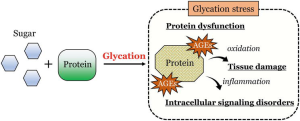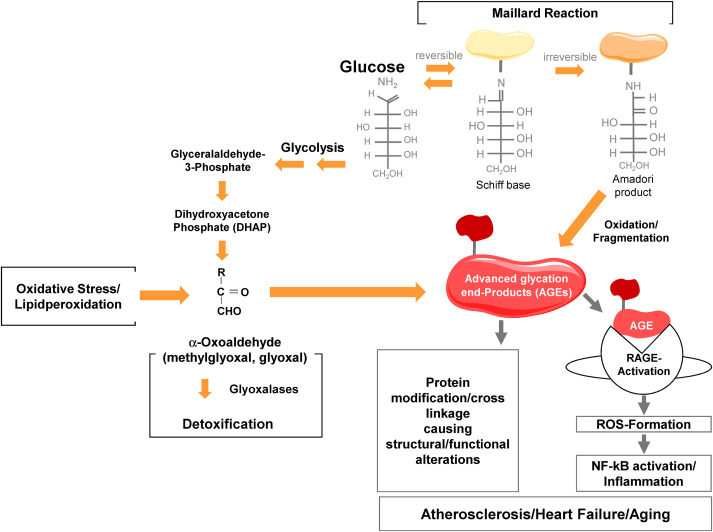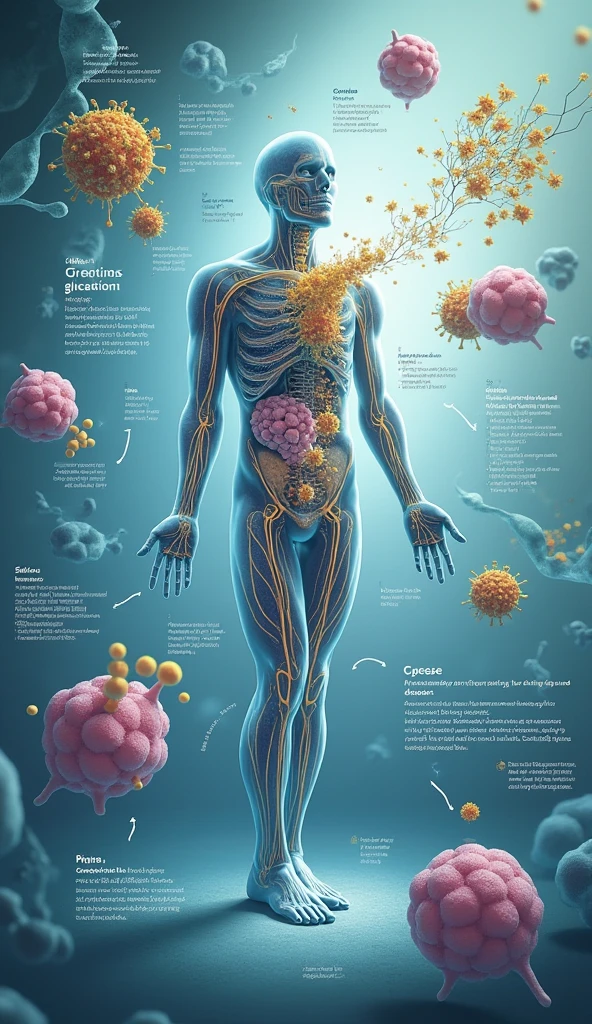
Understanding Glycation: The Hidden Culprit in Aging and Disease
What is Glycation?
Glycation occurs when sugars bind non-enzymatically to proteins, lipids, or nucleic acids, forming advanced glycation end-products (AGEs). This chemical reaction impairs the function of affected molecules and triggers inflammatory and oxidative stress responses. Over time, AGEs accumulate in tissues and are linked to numerous age-related disorders, including cardiovascular diseases, diabetes, and neurodegenerative conditions.
The Dietary Connection
While glycation is a natural byproduct of metabolism, dietary choices significantly influence its intensity. High-carbohydrate diets, particularly those loaded with refined sugars and processed foods, exacerbate glycation. Even so-called “healthy” diets, which often emphasize carbohydrates, can inadvertently promote glycation if not carefully structured.

#image_title
The Misconception About “Healthy Carbs”
Dr. Ellis critiques the pervasive endorsement of carbohydrates in dietary guidelines. He argues that such advice stems from flawed science and perpetuates health issues. Excessive carbohydrate consumption leads to spikes in blood glucose and insulin, creating an environment ripe for glycation. The glycemic index, often used to justify “good carbs,” oversimplifies the complex metabolic impacts of carbohydrate-rich foods.
Health Consequences of Glycation
- Aging: AGEs damage collagen and elastin, accelerating visible aging.
- Diabetes Complications: Elevated blood sugar amplifies glycation, contributing to retinopathy, nephropathy, and neuropathy.
- Heart Disease: Glycation modifies LDL cholesterol, making it more prone to oxidative damage and arterial deposition.
- Cognitive Decline: AGEs are implicated in Alzheimer’s disease by promoting amyloid plaque formation and inflammation in the brain.
Mitigating Glycation

#image_title
Dietary Adjustments
- Embrace a low-carbohydrate or ketogenic diet to stabilize blood sugar levels and reduce glycation risk.
- Focus on whole, unprocessed foods and limit refined sugars and grains.
- Include foods rich in antioxidants, such as leafy greens and berries, to counteract oxidative stress induced by AGEs.
Lifestyle Modifications
- Exercise regularly to improve insulin sensitivity and lower blood sugar levels.
- Avoid high-temperature cooking methods like frying or grilling, which generate dietary AGEs.
Supplementation
Dr. Ellis suggests exploring supplements like alpha-lipoic acid and carnosine, which can inhibit glycation processes.
Conclusion
Glycation is a silent yet significant player in the development of chronic diseases and aging. By rethinking our dietary patterns and focusing on anti-glycation strategies, we can unlock a pathway to better health and longevity. Dr. Ellis’s insights provide a comprehensive framework for understanding and combating the hazards of glycation in our daily lives.

